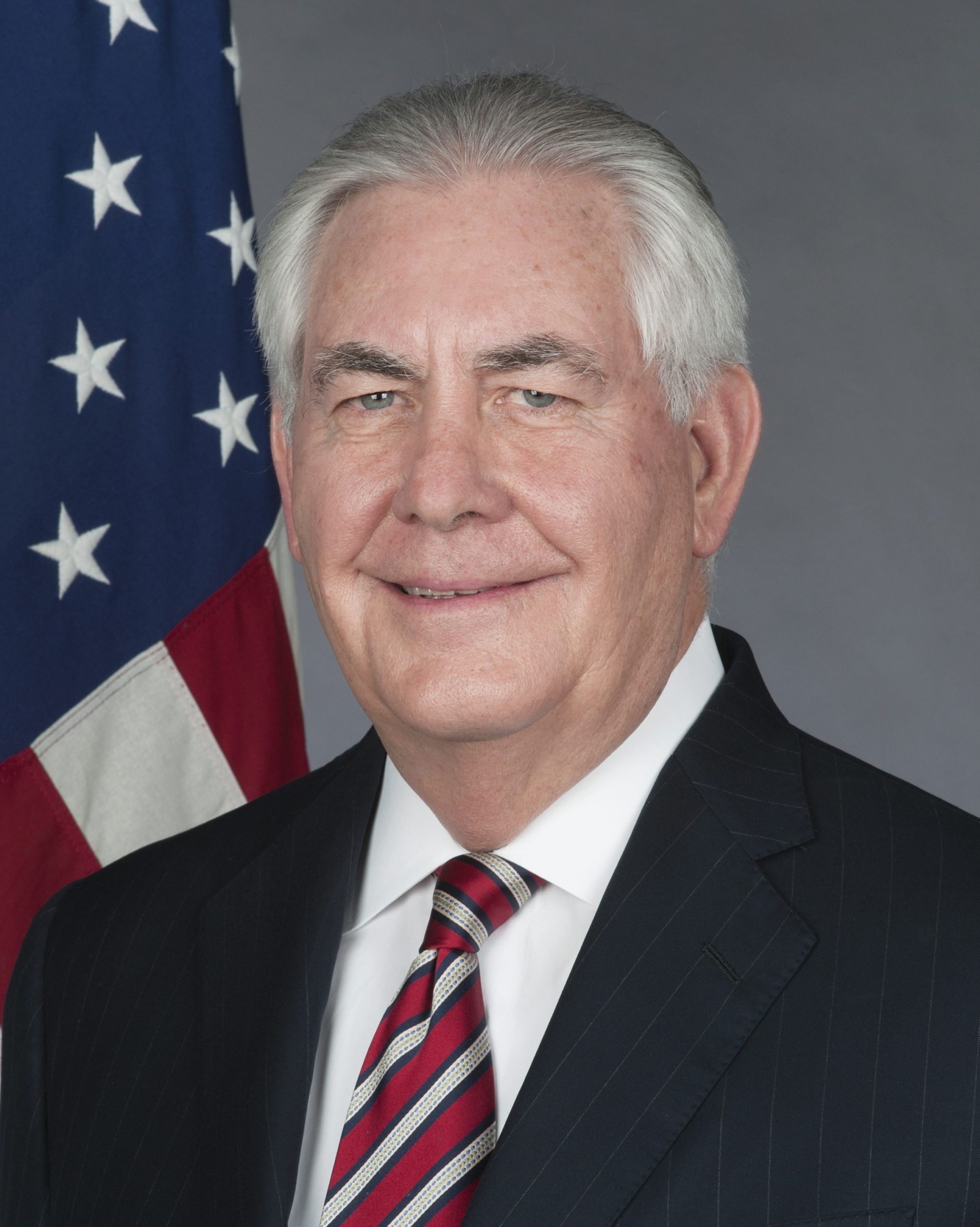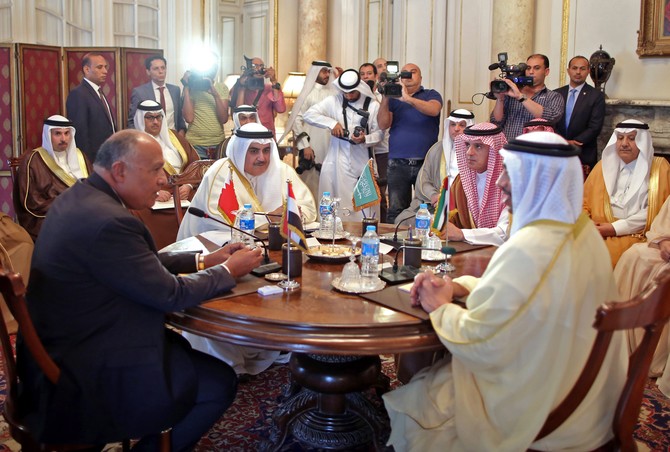The United States and its Western allies have vast economic and political interests in the Gulf. While Saudi Arabia is a key US ally, Qatar is home to the US military’s largest air base in the region, Al-Udeid, rival Bahrain houses the US Navy Fifth Fleet. Cumulatively the Gulf region produces 20 percent of the global oil supplies. America appeared to be running with rabbits as well as hunting with hounds. While President Donald Trump welcomed the Arab states’ decision to sever air and land links with Qatar, he credited his Middle East trip for this fiasco. However, the State Department took a more neutral position and Secretary of State Rex Tillerson embarked upon brokering a diplomatic solution.
Tillerson is striving to wrap up the crisis triggered by President Donald Trump on the eve of US-Arab-Muslim summit in May. Besides Tillerson, foreign ministers of Germany, Britain and France have also visited the Gulf for diffusing the row. Ripple effects of the crisis were also felt in Pakistan, as there were severe pressures on the government to take sides. However, prudence prevailed and Pakistan declined to choose sides and instead lent its support to Kuwait-led efforts for diffusing the crisis. The hype created by Saudi Arabia and the UAE pegged on a phrase borrowed from George W Bush’s post 9/11 rhetoric “Either you are with us or against us” was certainly an over kill, indicating a poor sense of diplomacy.
During the Riyadh summit, Trump had specifically asked the government of Saudi Arabia to take stern action against Qatar. His uncalled for anti-Qatar remarks, ostensibly at the behest of Saudi Arabia and UAE, encouraged four Arab States to boycott ‘brotherly’ Qatar over accusations that it supported extremist financing. Saudi Arabia, the UAE, Egypt and Bahrain had announced sanctions against Qatar on June 5. They severed diplomatic ties, suspended transport links with Doha and ordered all Qataris working in these countries to return home within 14 days. The crisis was further escalated as the gang of four handed down a list of thirteen demands to Qatar, including closing broadcast giant Al-Jazeera, downgrading ties to Iran and shutting a Turkish military base. These demands were untenable, Qatar dug its heels, presumably again on American behest; it refused to comply with the ultimatum and has consistently denied accusations of ties to extremist groups.
The four nations’ boycott of Qatar turned out to be a fizzle. Iran was quick to boost export of food to Qatar and allowed the Qatari airline to fly in its airspace. Oman also did not join the boycott and maintained usual ties with Qatar and joined the Kuwaiti and US-led crisis talks. Turkey has sent more than 200 cargo planes to Qatar since the dispute began. Kuwait has emerged as focal mediator of the crisis.
The 13 point demand notice did not go down well amongst the international community, resulting only in multi-directional mudslinging. The UN Rights chief Zeid Ra´ad Al Hussein on June 30 said the demand to close Al-Jazeera represented “an unacceptable attack on the right to freedom of expression and opinion. “This triggered a harsh response from the UAE. In a letter to the rights chief, UAE state minister for foreign affairs Anwar Gargash accused Al-Jazeera of anti-Semitism and inciting viewers to discrimination and violence. The letter lists the broadcasting of “sermons by the spiritual leader of the Muslim Brotherhood, Yusuf al-Qaradawi in which he praised Hitler, described the Holocaust as ´divine punishment´” and the regular airing of the speeches of Osama bin Laden and other terrorist leaders as reasons warranting its closure.
However, by succeeding in putting Qatar under pressure through four nations, the US secured an agreement with Qatar on countering terrorism financing. And with the objective achieved, the puppeteer is now asking the puppets to stand down, but the puppets are demanding “Do More” from the puppeteer.
For all practical purposes, the crisis is over after making customary dissenting noises, soon the boycotting states would start back paddling the symbolics of the crisis. So far, these four Arab states have dismissed a counter-terrorism deal signed between Qatar and the US terming it as “insufficient”. Commitments made by Qatari authorities “cannot be trusted,” said a joint statement published by Saudi state news agency SPA. The Statement appreciated the US efforts in fighting terrorism and claimed that the agreement was as a result of “repeated pressures and demands of the four countries and their partners over the past years to stop supporting terrorism”. But it was “not enough” and called for “strict controls to verify seriousness in returning to the normal and right path”. And that their sanctions would remain in place until Qatar meets their demands.

While in Saudi Arabia on July 12, Tillerson underscored the shared mutual interests between the United States and Saudi Arabia notably in the areas of “security, stability… and economic prosperity”. Speaking after meeting with the Saudi crown prince, Tillerson stressed that the two countries shared a “strong partnership”. He also met the foreign ministers of Saudi Arabia, Egypt, the UAE and Bahrain in an attempt to mend fences between crucial US allies. Tillerson described Qatar as being “reasonable” in its dispute with the four states and said at a joint news conference with Sheikh Mohammed: “The memorandum lays out a series of steps that each country will take in coming months and years to interrupt and disable terror financing flows and intensify counter terrorism activities globally.“
He described the deal with Qatar that “lays out a series of steps the two countries will take over the coming months and years to interrupt and disable terror financing flows and intensify counter-terrorism activities globally.” The deal meant Qatar was “the first to respond” to Trump’s call at a summit in Riyadh in May “to stop the funding of terrorism”, Tillerson said. He indicated that such deals could be signed with the other Arab states as well. Tillerson also said the agreement signed with his Qatari counterpart, Sheikh Mohammed bin Abdulrahman al-Thani, had been under discussion for months.” The agreement which we both have signed on behalf of our governments represents weeks of intensive discussions between experts and reinvigorates the spirit of the Riyadh summit.“ Sheikh Mohammed said the agreement was not linked to the crisis with the four Arab countries. “Today, the state of Qatar was the first to sign the executive programme with the United States to fight terrorism financing,” Sheikh Mohammed told the joint news conference. Tillerson said the agreement includes milestones to ensure that both countries are accountable through their commitments. “Together the United States and Qatar will do more to track down funding sources, will do more to collaborate and share information and will do more to keep the region safe,” Tillerson said.
With regard to conduct of statecraft, Saudi Arabia is making mistake after mistake since its intervention in Yemen, and as a result incrementally complicating the Middle East situation. It needs to realize that for a peaceful Saudi Arabia a tranquil and stable Middle East is a prerequisite. The Middle East is in pain and needs a healing touch and an inclusive handling. Saudi Arabia needs to understand that sectarianism as a driver of its foreign policy and imitating American rhetoric have serious operational limitations, and these could bring it only this far. It is also a moment of self-reflection for the GCC countries. Hopefully, they will learn appropriate lessons and avoid knee-jerk reaction to the events which need prudent handling. Pakistan needs to continue its role of mediation amongst the GCC countries as well as between the Arab bloc and Iran. This role should move beyond sporadic reactive firefighting actions and transform to a consistent and institutionalized activity in coordination with other likeminded countries.




